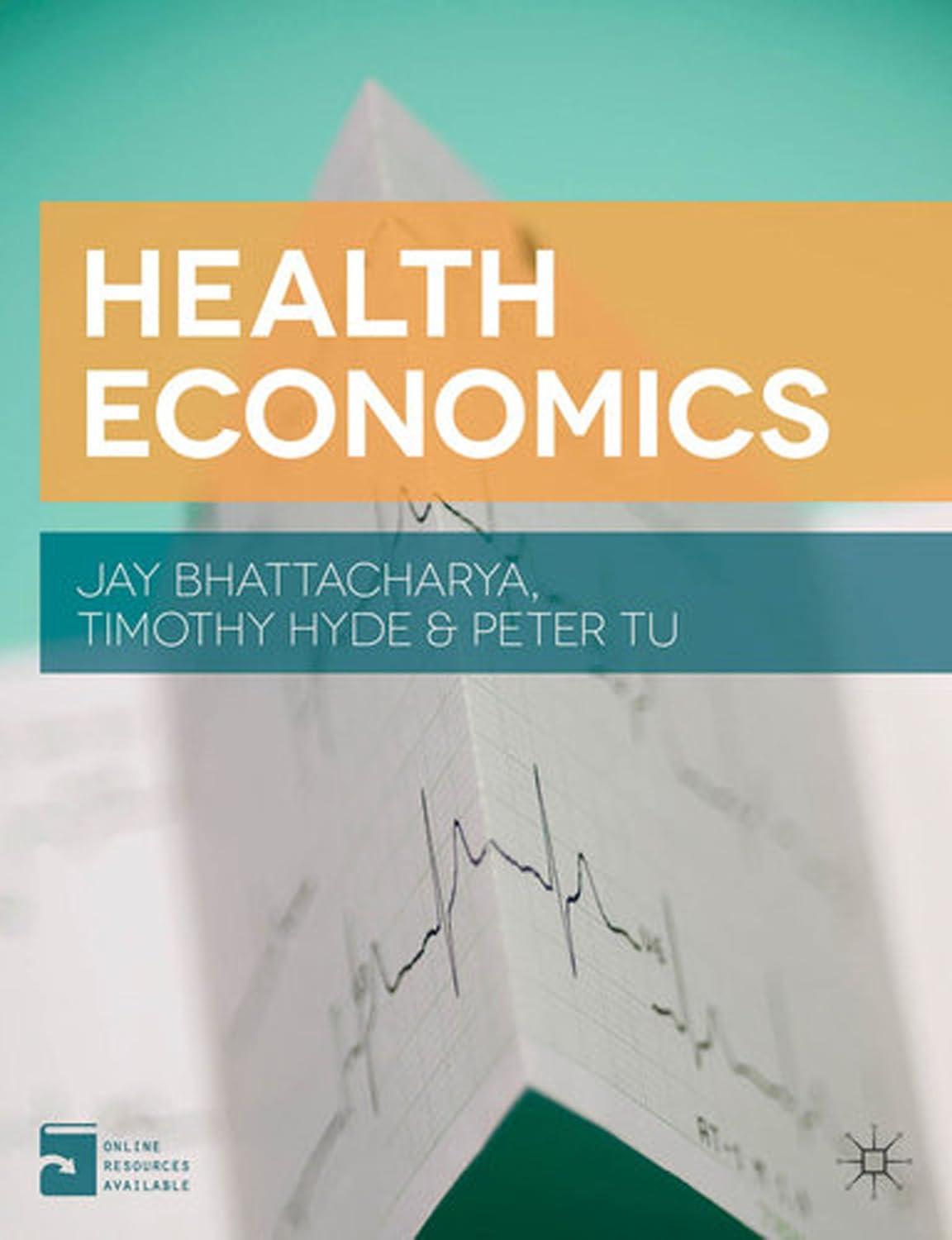Consider a two-hospital town with hospitals unimaginatively named A and B. The hospitals are considering installing a
Question:
Consider a two-hospital town with hospitals unimaginatively named A and B. The hospitals are considering installing a new imaging machine to attract more patients. The population of the town is small enough that it really only needs one of these machines. Purchasing a machine costs $1,000.
• If both hospitals install a machine, each earns $800 in revenue.
• If only one hospital installs a machine, that hospital earns $1,800 in revenue. The other hospital loses $300 in revenue as patients switch to the other hospital.
• If neither hospital installs a machine, then revenue does not change for either one.
a. Consider hospital A’s decision to buy one of these fancy new machines. A’s profits will depend on what B decides to do. Suppose hospital B buys a machine. How much will A earn if it also decides to buy a machine? How much will A earn if it does not? What should A do if B buys a machine?
b. Now consider A’s optimal choice if B decides not to buy a machine. How much will A earn if it buys a machine? How much will A earn if it does not? What is A’s best response if B does not buy a machine?
c. We assume that the hospitals make their decisions about the imaging machine concurrently, so this interaction can be modeled as a simultaneous-move game.

where A11 and B11 are hospital A’s and B’s respective payoffs when both hospitals install the imaging technology. Fill in this game payoff matrix.
d. Hospitals A and B both act to maximize profits. What do you predict will happen in this market? Will the socially optimal outcome – only one machine is purchased in the town – happen?
e. Suppose hospitals A and B share an owner who maximizes joint profits rather than individual ones. What do you predict will happen?
f. In this case, is hospital competition good for welfare? What other information, if any, would you need to make an assessment?
Step by Step Answer:






